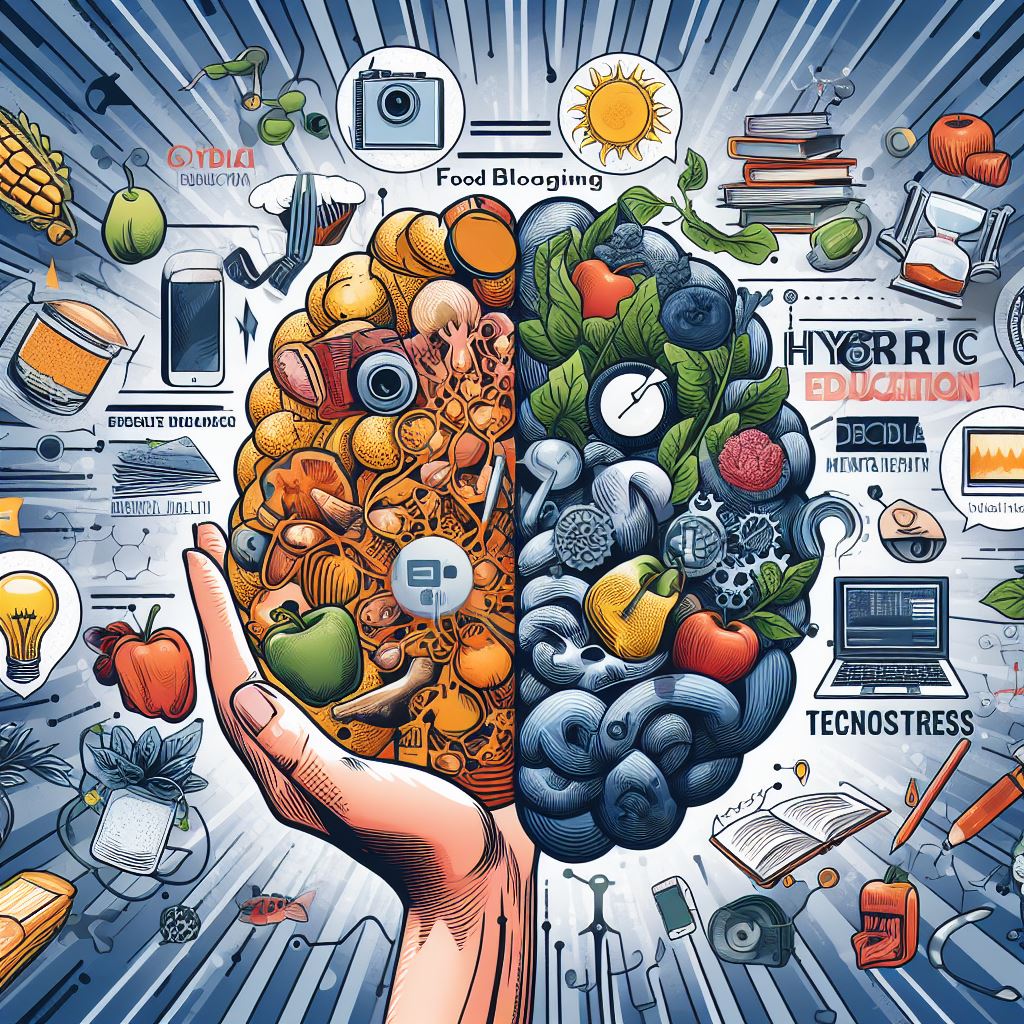Archives
-

Vol. 21 No. 1 (2025)
Special issue: Customised Diversity? Education, capitalism and diversity in the digital conditionCover illustration: Lilli Riettiens, using a licensed version of Adobe Firefly via the University of Mainz
Valentin Dander, Professional Association for Media Education, Media Literacy and Communication Culture (GMK), Bielefeld, valentin.dander@gmail.com
Lilli Riettiens, Institute of Educational Science, Johannes Gutenberg University Mainz, l.riettiens@uni-mainz.de
Rachel Shanks, Interdisciplinary Institute, University of Aberdeen, r.k.shanks@abdn.ac.uk
Nina Grünberger, Professor for Education in the Context of Digitality, Technical University Darmstadt, nina.gruenberger@tu-darmstadt.de
Theo Hug, Department of Media, Society and Communication, University of Innsbruck Theo.Hug@uibk.ac.at https://orcid.org/0000-0003-1279-623X
The notion of diversity is widely accepted as a positive value in Europe and beyond. However, in the context of current capitalist relations in general, diversity has long since developed into a marketable slogan and has been customised as a technology of corporate management. Under the formula “customised diversity?”, this special issue addresses a core ambivalence of capitalist markets. In this regard, the educational context is particularly interesting as Big Tech and for-profit educational industries are pushing into the ed tech (educational technology) sector, seeking to install mono-cultures of digital infrastructures of teaching and learning.This issue brings together different traces of capitalism in the digital age through all types of education and media and across several European countries. The empirical and theoretical contributions examine how capitalist logics shape educational technologies, policies, and research practices, often prioritising datafication, measurability, and optimisation. They ask how media education can support democratic, equitable, and sustainable futures, and how researchers can challenge the reproduction of capitalist structures in education through critical, utopian, or subversive practices.
This collection of articles brings together different traces of capitalism in the digital age through all types of education and media and across several European countries. We hope that you find this diversity of scholarship and the collection of research on the past and present alongside suggestions for the future of capitalism of interest.
-

Vol. 20 No. 2 (2024)
Synopsis of Special issue number two of MEC 2023 - Media education meets wildernessSynopsis of Special issue number two of MEC 2023
Media education meets wilderness
Heli Ruokamo, University of Lapland, heli.ruokamo@ulapland.fi
Yngve Nordkvelle, University of Inland Norway, Yngve.Nordkvelle@inn.no
In this issue we publish a second batch of papers written for a research seminar named “The 2023 Media Education Conference” (MEC 2023, www.ulapland.fi/mec2023). “Media education meets wilderness” was the title for this year’s gathering. The conference took place in Salla Wilderness Park, Sallatunturi, Finland in September 25–27, 2023. MEC is an informal and friendly conference that participants attend to exchange ideas and information dealing with media education, educational use of ICTs, and learning environments. MEC 2023 was organized by the Media Education Hub (www.ulapland.fi/meh) at the University of Lapland. MEC is organized every second year and MEC 2023 was the tenth media education conference. MEC 2023 participants were invited to submit paper proposals to be published in this special issue of seminar.net. After a thorough round of peer-reviews and revisions we now proudly present four new papers from this conference.
The last contribution, not presented at the MEC-conference we append a paper reporting from Southern Europe, namely Bosnia-Herzegovina, a country never represented before in this journal.
Olli Kelhä presents the paper “Gamified App-based Well-being Interventions for Children and Young People: A Systematic Literature Review”. He found 16 studies which used gaming as base for application that promoted well-being among children and adolescents. He found certain common traits like promoting a holistic body-mind intention, with a focus on self-determination theory. He found areas for improvement, particularly related to current health situations for young Finnish students.
Erika Tanhua-Piiroinen and Jarmo Viteli of Tampere University, Finland, contributes with the paper ”The Digital Leap in March 2020 – Teachers Assessing Their Digital Competence After the Distance Learning Period”. The topic is to provide a measure of whether the new competencies introduced by necessity of the pandemic has lingered with the group of Finnish teachers. The results suggest that the competencies have increased, but only moderately with the teachers. Students seem to not using ICT more after the pandemic than before.
Satu Aksovaara and Minna Silvennoinen, of Jamk University of applied sciences, and Sami Määttä of Tampere University together with Tommi Kärkkäinen of the University of Jyväskylä, investigate, in their paper “Enhancing Study Experience Through Teacher Response: A Learning Analytics Case Study of Two Course Implementations” a serious matter for teachers in higher education. How can one cope with a growing number of students and diversity of students. Their proposal is to use learning analytics intelligently and in two cases they demonstrate the help one may get from such a tool to improve student’s learning experience.
Johanna Pentikäinen and Outi Kallionpää of Lapland University offer us insights from their paper “A Systematic Review of Research on Learning Writing Skills Using Gamification”. While gaming is often seen as detrimental to reading and writing in young students, the opposite tendency was explored in their literature review of papers that report from using games to teach writing. They find some inspiring ideas of how such activities might improve writing, but also question how those can be implemented on a broad base.
Our last contribution is not from the MEC-conference. Dragana Trninić from the University of Banja Luka contributes with the paper Digital Competences of Elementary School Teachers in the Republic of Srpska (Bosnia and Herzegovina). As the title says, it examines the of one of the republics in current Bosnia and Herzegovina. The paper displays initiatives and shortcomings in the current situations and calls for a more intensive approach to improve the general level of digital competencies in the republic.


